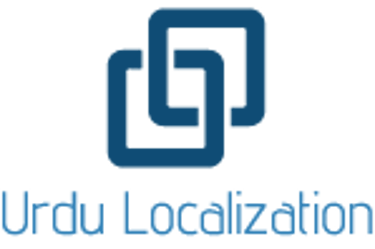
Urdu Localization in Mobile Payment Apps and Digital Wallets
3 min read

Mobile payments and digital wallets have redefined the way people handle money. From buying groceries to paying bills, transferring funds, or topping up mobile credit, these platforms have made financial transactions faster and more convenient. But for Urdu-speaking users, especially in Pakistan and diaspora communities across the globe, usability and trust in digital finance depend on one key factor: accessibility in their own language. Urdu localization services are no longer optional; they are essential for making digital finance truly inclusive.
Why Urdu Matters in Digital Finance
Financial systems demand absolute clarity. A single mistranslation or poorly adapted instruction can create confusion, errors, or even loss of money. For millions of Urdu speakers who are not comfortable with English, mobile wallets and payment apps become inaccessible if they are not localized properly. Professional Urdu translators ensure that every instruction, button label, and security warning is clear, accurate, and trustworthy. This allows users to manage money with confidence instead of hesitation.
Interface Adaptation for Urdu’s Right-to-Left Script
Digital wallets and mobile apps are designed with usability in mind, but when interfaces are adapted for Urdu, the right-to-left (RTL) script presents unique challenges. Buttons, icons, and navigation menus must be realigned. A misplaced “Confirm Payment” button or a reversed flow in transaction history could disrupt the user experience entirely. Expert Urdu localization services adapt interfaces so that they look natural, intuitive, and culturally appropriate, while maintaining the security standards essential in financial platforms.
Simplifying Financial Literacy Through Urdu
For first-time users, mobile payments can be intimidating, especially if they involve technical jargon or banking terminology in English. When translated poorly, these terms become even harder to understand. Professional Urdu translators specializing in financial content simplify complex instructions without losing precision. A notification about “insufficient balance” or a warning about “failed transaction” must be direct and clear. By breaking down technical financial language into familiar Urdu expressions, localization not only helps users complete transactions but also contributes to financial literacy.
The Role of Trust in Digital Wallet Adoption
In finance, trust is everything. If users cannot understand the terms of service, privacy policies, or transaction confirmations, they hesitate to use the platform. Confidential Urdu translation services provide peace of mind by making sure that all documents — from user agreements to customer support FAQs — are communicated accurately. When people can read and understand in their own language, they are far more likely to adopt and continue using mobile payment apps.
Urdu Voice-Overs and Help Features
Many mobile payment apps now include voice-guided features or audio assistance to make transactions even more user-friendly. Offering these services in Urdu further improves accessibility, particularly for individuals who struggle with literacy. Urdu voice-over services ensure that instructions are delivered in a natural, trustworthy tone. This not only reduces mistakes but also empowers users who might otherwise avoid digital finance tools due to reading difficulties.
Consistency in Terminology Across Financial Tools
A recurring problem in unprofessional translation is inconsistent terminology. Such inconsistencies confuse users, especially when they interact with multiple platforms. Professional Urdu translation and proofreading services ensure that financial terms remain consistent across apps, documents, and customer support channels. This uniformity enhances user confidence and creates a smoother financial journey.
Meeting Compliance and Security Standards
Financial services are governed by strict regulations. Any error in translation — even a misplaced word in a privacy agreement — can have legal implications. Professional Urdu translators familiar with financial compliance ensure that all content, from data protection clauses to security protocols, is conveyed correctly. This not only protects users but also safeguards companies from reputational risks and regulatory issues.
Expanding Reach in Emerging Markets
Pakistan, with over 230 million people, represents one of the fastest-growing markets for mobile payment apps. Urdu-speaking communities in the Middle East, the UK, and North America further expand the potential user base. Platforms that invest in Urdu content localization stand out as inclusive and user-friendly, positioning themselves ahead of competitors. Offering an app fully localized in Urdu signals respect for the audience and a commitment to financial inclusivity.
Confidentiality in Urdu Financial Localization
Confidential Urdu translation services are crucial in digital finance. Sensitive documents like KYC (Know Your Customer) forms, transaction records, and verification documents must be translated without risking exposure. Trusted professional translators understand the importance of confidentiality, protecting both customer privacy and institutional integrity. For users, knowing their information is handled securely fosters greater loyalty toward the platform.
By prioritizing Urdu localization, mobile payment apps and digital wallets do more than provide convenience. They build bridges of trust, empower individuals with financial literacy, and expand access to services that shape economic growth. A seamless Urdu experience removes barriers, allowing millions of people to fully embrace digital finance. In the future of money, inclusivity will be a deciding factor, and language — particularly Urdu — will play a central role in who gets to participate.
